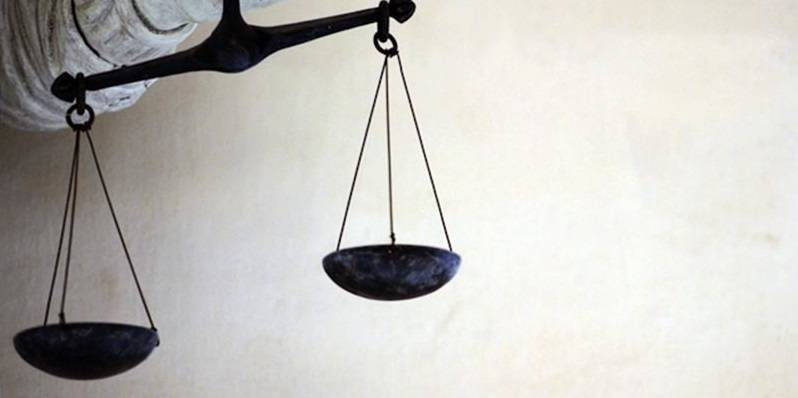
At least three judges married young girls in order to 'secure their future' after they depart this world, says investigative journalist Fakhar Durrani.
In a podcast on Monday, Durrani revealed how the judges married girls half their age to ensure that their children continue to receive the pension paid to the representatives of the law from the exchequer.
In one case, a 70-year-old former judge of the Supreme Court recently told a secretary that he had been blessed with a boy.
The surprised official inquired him about it, to which the judge revealed that he had married a 25 or 26-year-old girl.
According to him, the girl, who wasn't financially well, now has a shelter and he has a child who will now receive his pension after he is no more.
Two more judges, one from Punjab and the other from Khyber Pakhtunkhwa, have also married girls for the same reasons.
Durrani quoted some federal bureaucrats as saying that the 'trend' is fast finding popularity among the representatives of the law.
"This is despite the fact that the court staff, even those at the lower cadre, are paid exorbitantly for their services."
Earlier today, the legal fraternity lauded SC judge Qazi Faez Isa's act of voluntary disclosure of his assets, income and liabilities, and demanded that other judges of the court follow in his footsteps, especially those who are currently facing references in the SJC for their alleged misconduct and corruption.
Speaking to The Friday Times, Barrister Taimur Malik said, “The superior court judges are the highest paid public office holders in Pakistan, and thus there's and should be every expectation that the details of their, and those of immediate family members, assets should be made public, whether voluntarily or through statutory requirement.”
According to senior lawyer and leading tax consultant Dr. Ikramul Haq, a lot can be learned from India in this regard. He recalls that the issue of asset disclosure of judges in the neighbouring country came to the limelight when a Right to Information Application was filed by Subhash Agarwal with the Supreme Court, seeking to know if judges of the high courts and the Supreme Court were complying with the 1997 Code of Conduct, in wake of the debate in the Parliament.
In a podcast on Monday, Durrani revealed how the judges married girls half their age to ensure that their children continue to receive the pension paid to the representatives of the law from the exchequer.
In one case, a 70-year-old former judge of the Supreme Court recently told a secretary that he had been blessed with a boy.
The surprised official inquired him about it, to which the judge revealed that he had married a 25 or 26-year-old girl.
According to him, the girl, who wasn't financially well, now has a shelter and he has a child who will now receive his pension after he is no more.
Two more judges, one from Punjab and the other from Khyber Pakhtunkhwa, have also married girls for the same reasons.
A lot can be learned from India in this regard. He recalls that the issue of asset disclosure of judges in the neighbouring country came to the limelight when Right to Information application was filed by Subhash Agarwal with the Supreme Court, seeking to know if judges of the high courts and the Supreme Court were complying with the 1997 Code of Conduct, in wake of the debate in the Parliament.
Durrani quoted some federal bureaucrats as saying that the 'trend' is fast finding popularity among the representatives of the law.
"This is despite the fact that the court staff, even those at the lower cadre, are paid exorbitantly for their services."
Earlier today, the legal fraternity lauded SC judge Qazi Faez Isa's act of voluntary disclosure of his assets, income and liabilities, and demanded that other judges of the court follow in his footsteps, especially those who are currently facing references in the SJC for their alleged misconduct and corruption.
Speaking to The Friday Times, Barrister Taimur Malik said, “The superior court judges are the highest paid public office holders in Pakistan, and thus there's and should be every expectation that the details of their, and those of immediate family members, assets should be made public, whether voluntarily or through statutory requirement.”
According to senior lawyer and leading tax consultant Dr. Ikramul Haq, a lot can be learned from India in this regard. He recalls that the issue of asset disclosure of judges in the neighbouring country came to the limelight when a Right to Information Application was filed by Subhash Agarwal with the Supreme Court, seeking to know if judges of the high courts and the Supreme Court were complying with the 1997 Code of Conduct, in wake of the debate in the Parliament.

